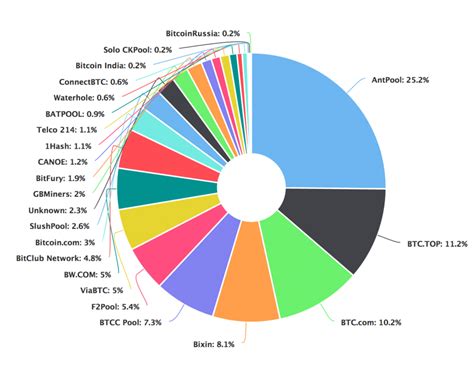Ethereum: What software do mining pools run?
Ethereum: What Software Do Mining Pools Run?
When it comes to mining pools on the Ethereum network, you may wonder what software is used to allocate resources and participate in the process of validating transactions. In this article, we will delve into the world of Ethereum mining pools and examine what specific software they run.
What is a mining pool?
A mining pool is a collective effort in which multiple miners join forces to solve complex mathematical problems, called “hash functions,” that secure the Ethereum network. Working together, these miners can validate transactions and create new blocks on the chain, thereby protecting it from malicious activities such as double spending or manipulation.
Software used by Ethereum mining pools
There are several software platforms that enable Ethereum mining pools to operate efficiently. Some of the most popular ones are:
- Ethools: Ethools is a blockchain-based platform that allows users to create and manage mining pools on Ethereum. It provides a user-friendly interface for pool administrators to set up, manage, and operate their mining pools.
- Hashflare: Hashflare is a well-known mining pool operator that uses a proprietary software framework to optimize the performance of its mining pools. Its software offers advanced features such as hash rate management, network monitoring, and automatic updates.
- Slush Pool: Slush Pool is one of the largest and most prominent Ethereum mining pools, founded by Michael Suleman in 2014. The pool uses a custom-built software framework that allows for efficient hashing and optimization of resources.
How do mining pools allocate resources?
Mining pools use various algorithms to efficiently allocate resources among their members. Some common methods are:
- Fixed hash rate allocation: In this approach, the total hash rate is divided equally among all pool members based on their individual contribution ability.
- Variable hash rate allocation: This method involves dynamically allocating hash rates to individual members based on their actual contribution power and performance over time.
What makes Ethereum mining pools different?
Compared to other blockchain networks such as Bitcoin or Litecoin, Ethereum has unique features in terms of mining. Here are some of the differences:
- Hash Rate Optimization: Ethereum mining pools have access to more resources, including specialized hardware such as graphics processing units (GPUs) and ASICs, which allow them to optimize hash rate allocation.
- Smart Contract Integration: Some Ethereum mining pools integrate smart contracts to automate various processes such as transaction validation and block creation.
Conclusion

In summary, Ethereum mining pools use a variety of software platforms to efficiently allocate resources among their members. From Ethools and Hashflare to Slush Pool’s custom-built framework, each pool has developed its own approach to optimizing performance and increasing revenue. By understanding how these software systems work, users can better appreciate the intricacies of Ethereum mining and the efforts to maintain a secure and decentralized network.
References
- Ethereum.org: The official website of the Ethereum blockchain.
- Hashflare: The official website of Hashflare.
- Slush Pool: The official website of Slush Pool.


